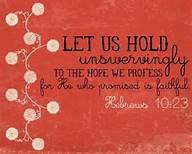“How Many Times?”

Matthew 18:21-35 – September 17, 2023
Do you remember someone doing something really awful? Maybe you had something you really loved, your grandma’s favorite dish or teapot or picture. And, someone broke it! Into a hundred pieces, so broken that you never could fix it! Or, perhaps it was your brand new cell phone that someone dropped in a deep puddle! Even though the person at the AT&T store said it might be able to be fixed, you knew that soggy cell phone was a hopeless case.
And, every time you see that clumsy or thoughtless or idiotic person, you can’t help but remember again what happened! What was that person thinking? Or maybe that person just didn’t think! That was the problem!
Let’s take another look at how this parable was set up. The disciple Peter – you remember good ol’ brash, foot-in-mouth Peter, don’t you? – comes up to the Rabbi Jesus and asks him, “Lord, how many times shall I forgive my brother or sister who sins against me? Up to seven times?” 22 Jesus answered, “I tell you, not seven times, but seventy-seven times.”
In Jewish practice of that time, forgiveness was not taken for granted. Forgiving someone three times was considered generous! So, for Peter to ask whether forgiving SEVEN times was sufficient, he must have thought he was going way above and beyond! Yet, how does Jesus respond? How many times does Jesus tell Peter to forgive? Seventy-seven times?
If we consider the times we are living in, today, people are not very forgiving. People are really divided! If I am a Chicago Bears fan, and someone else is a Green Bay Packers fan, that can be a real deal-breaker as far as being friends is concerned. My daughter Rachel lived in St. Louis for six years, and occasionally went to Busch Stadium to watch the Chicago Cubs play the St. Louis Cardinals. She told me many St. Louis fans objected to her Chicago Cubs gear!
Except, our Gospel reading today is a lot more serious than sports teams and rivalries. This parable of Jesus is about two servants of the King. The first servant owed that King a whole lot of money! Bags and bags of money! Maybe as much money as you or I would earn in five whole years, or more! When the first servant went down on his hands and knees and begged the King to be merciful, and to give him time to repay his loan, the King did.
But, that is not the end of the parable! By no means! No sooner did the first servant leave the throne room of the King, when who should he meet but a second servant. This second servant owed the first a small sum of money. Perhaps two weeks’ wages, maybe a month’s wages. The second servant did exactly what the first had done with the King, got down on his hands and knees and begged the first servant to be merciful.
Did the first servant remember how generous the King was to him? Did the first servant extend the same mercy, grace and forgiveness to his fellow servant? No! The first servant had his fellow servant collared by the police and thrown into jail for delinquent debt!
Our Gospel reading today is difficult. That is, when you and I try to put it into practice. When we gather for worship and hear this parable “where Jesus tells Peter that we forgive 77 times, or 70 times 7, or in fact, we just keep forgiving, we smile and nod and clap our hands. “Of course,” we think, “we worship a forgiving God, and we know we need God’s forgiveness over and over again.” But then we realize that this means we also must be forgiving of those who offend us, again and again, perhaps. And then we wonder if that’s even possible.” [1]
Sometimes, it’s just so difficult! Especially with certain people! When they overstep the mark or put their foot into their mouth again, for the twentieth, or hundred and twentieth time, it can be so difficult to forgive them again and again! We all know we are not living in particularly forgiving times! People and groups are so divided, forgiveness seems like a real impossibility.
Except, this is not merely a suggestion from our Lord Jesus. He doesn’t ask, “pretty, pretty please?” No! Jesus is serious. He means what He says. We need to forgive others if we expect God our Heavenly Parent to forgive us. Not once in a while, but all the time.
Our Jewish friends are observing their New Year this weekend, with Rosh Hashanah and the High Holidays. This is a time for forgiving, for the Jewish tradition of apologizing and forgiving the day before the new year starts. Yes, there are easy things to forgive, like when someone bumps your car in the parking lot and makes a little dent on your bumper. But then, there are hard things to forgive, too. Forgiving is something we all need to do, no matter how young or old we are, no matter how serious or what the trespass or sin is. [2]
You and I, every person, everywhere, we all make mistakes. We all need to be forgiven on a regular basis. Yet, how often do we go about our lives not paying attention? Or being oblivious to our missteps, or silly words, or angry actions? When we are divided into different camps, into “us” and “them,” on opposite sides of an issue, forgiveness and kindness rarely enter the conversation! [3]
We all need this call from our Lord Jesus to repent, to forgive, and to be forgiven. In this particular congregation we say the Lord’s Prayer every week. One of the petitions in the Lord’s Prayer is “forgive us our debts—or sins—as we forgive those who sin against us.” Have you ever thought that if you and I do NOT forgive on a regular basis, we are going against this petition we regularly pray? Why should God forgive us if we are stubborn and refuse to forgive others?
I repeat – our Gospel reading today is difficult. That is, when you and I try to put it into practice. Do we hear this call from our Lord Jesus to live counterculturally? Can we swim against this tide of anger and vengeance and hatred that is so prevalent in our world and our culture? Isn’t it risky, doing this forgiveness thing on a regular basis?
Right now, I am giving an invitation to consider what a life of forgiveness, mercy and grace might look like, in our real-world living. Hear the call! Do what Jesus said. This is a crystal-clear time to consider: what would Jesus do? Do that. Forgive, as we are forgiven.
(Suggestion: visit me at my other blogs: matterofprayer: A Year of Everyday Prayers. #PursuePEACE – and A Year of Being Kind . Thanks!
(I would like to express my great appreciation for the superb observations and commentary from the Rev. Dr. Derek Weber, Director of Preaching Ministries with the United Methodist Church. I got several excellent ideas and quotes for this sermon from this excellent website, https://www.umcdiscipleship.org/worship-planning/the-journey-begins/sixteenth-sunday-after-pentecost-year-a-lectionary-planning-notes.)
[1] https://www.umcdiscipleship.org/worship-planning/the-journey-begins/sixteenth-sunday-after-pentecost-year-a-lectionary-planning-notes
[2] http://worshipingwithchildren.blogspot.com/2014/08/year-proper-19-24th-sunday-in-ordinary.html
[3] https://www.umcdiscipleship.org/worship-planning/the-journey-begins/sixteenth-sunday-after-pentecost-year-a-lectionary-planning-notes


